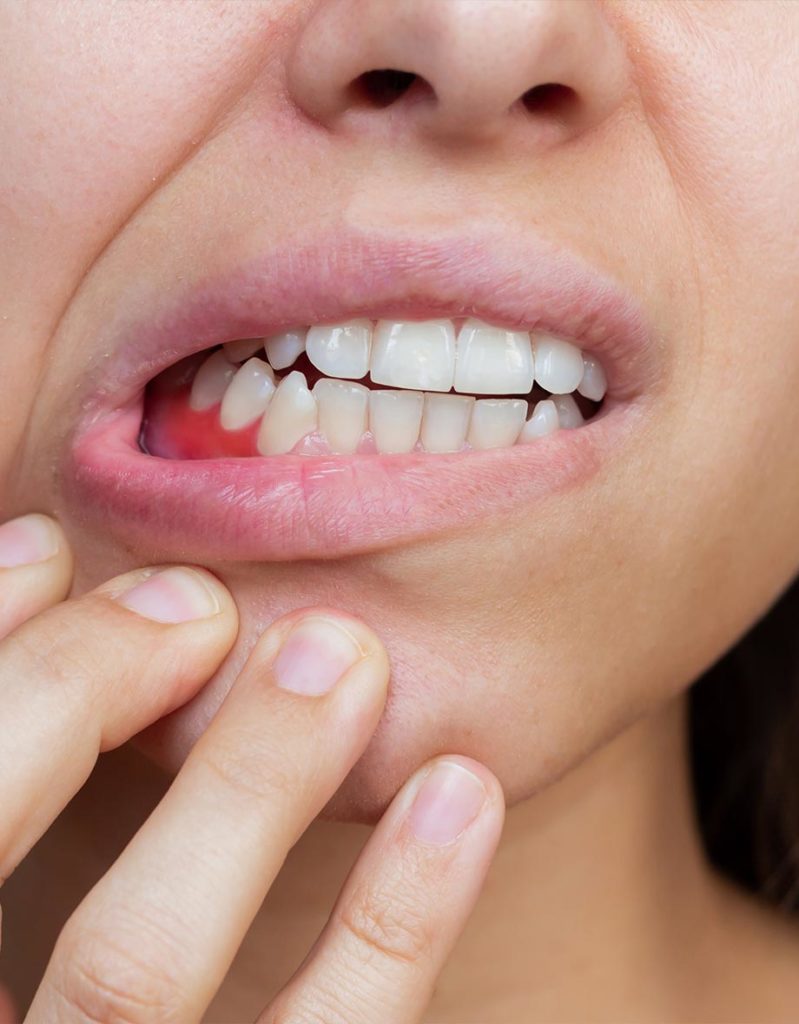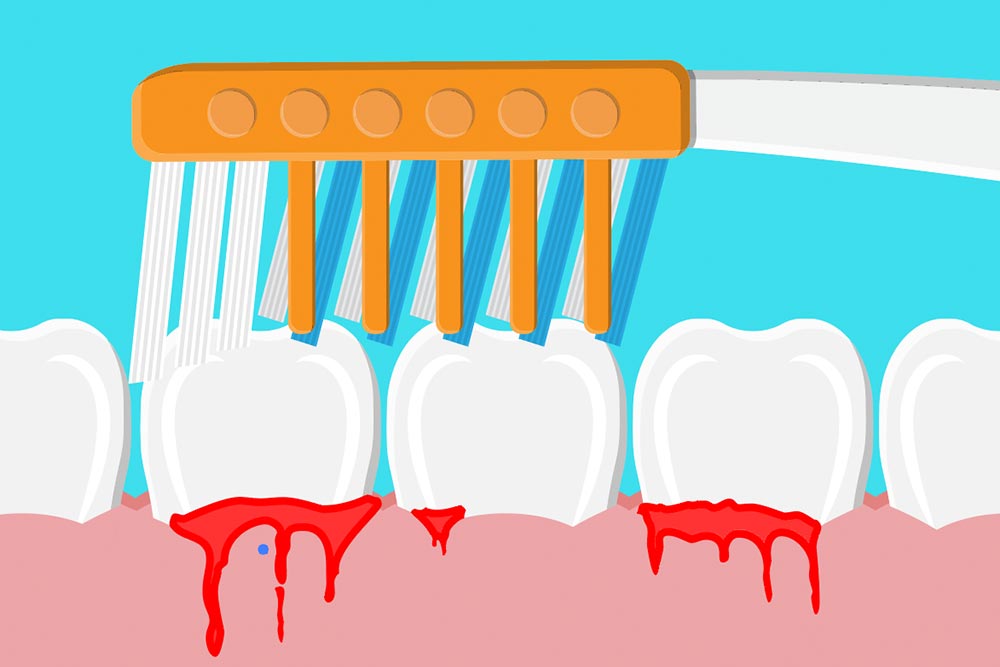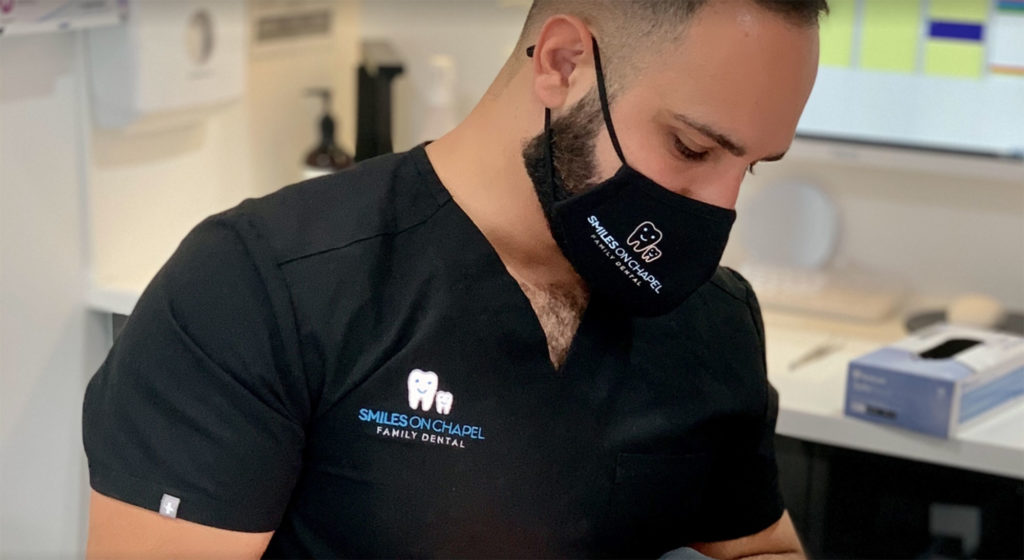Periodontal & Gum Care
At Smiles on Chapel, oral hygiene and preventative care is our motto.
Gum Care and Periodontal Disease
Dental plaque builds up on our teeth every day, caused by a combination of the food we eat, the saliva in our mouths and poor oral hygiene. While most plaque can be washed away by brushing, if it’s left to build-up, millions of bacteria will lead to gum disease. In order to fight this infection, our bodies will destroy the gum tissue and bone supporting our teeth, eventually leading to irreversible tooth loss.
At Smiles on Chapel, oral hygiene and preventative care is our motto. To save your teeth and avoid gum disease, it’s important to treat the cause of the problem. If you are showing the signs of gum disease, our gum care experts can take steps to prevent further damage and protect your smile.


What Are the Signs and Symptoms of Gum Disease?
Some signs that you might have gum disease include:
The lack of sleep can cause:
- mouth and tooth pain
- bleeding gums during brushing
- swollen or tender gums
- persistent toothache
- pus extruding from the gums
- bad breath (halitosis)
- loose teeth
However, gum disease can often develop with no obvious signs or symptoms. That’s why it’s important to pair daily tooth brushing with regular dentist appointments, to identify and fight the signs of gum disease.
To make an appointment for Periodontal Disease with us in Bankstown

Why Do I Get Bleeding or Swollen Gums?
Generally the impacted wisdom teeth removal cost depending upon the difficulty of extraction. As a general guide, it approximately starts from $400.00 – $700.00 per tooth. Lower wisdom teeth generally cost more than upper wisdom teeth extractions.
We encourage you to make a consultation appointment with our dentists and bring in any previous X-rays you may have.
Different Stages of Gum Disease
Gum disease gets progressively worse over time and it’s never too early to organise a check-up. If left to develop, gum disease will lead to increased destruction of the underlying gum tissue and in more serious cases, the surrounding bone. This will result in more serious, invasive and expensive treatments.

Early Gum Disease – Gingivitis
This early form of gum disease is restricted to the superficial gum tissue that is visible in the mouth. Gingivitis occurs when dental plaque is allowed to build up on the teeth, developing into a hard substance called calculus or tartar.
Common symptoms of gingivitis include redness, swelling and bleeding of the gums when brushing.
Advanced Gum Disease – Periodontitis
Referred to as periodontal disease or periodontitis, the more advanced stages of gum disease develop when gingivitis isn’t treated. Instead of just affecting the superficial tissues, periodontitis destroys the underlying structures such as the root surface, fibres and, ultimately, the bone.
The signs and progression of periodontitis include:
- bleeding, pus, pain and swelling
- loose teeth and tooth loss
- gradual gum recession
- inflammation and destruction of tooth structures including the tooth root, bones, fibres and periodontal ligament
- the development of spaces between the tooth and gum called 'periodontal pockets' – these pockets provide space for bacteria to develop, thrive and spread


Periodontal Treatments
Advanced periodontitis is not reversible. Possible treatments to prevent further damage including scaling and root planing, which involves removing plaque and calculus from the periodontal pockets, or even surgery in advanced cases. Patients with periodontal disease may also require dental implants, dentures or other tooth replacement solutions.
Prevention and Treatment Is the Key
To prevent periodontitis, it’s important to brush and floss daily as well as visiting your dentist to address hard-to-reach plaque and tartar.
What People Are Saying About Us!
We are here to help!
Make an Enquiry
